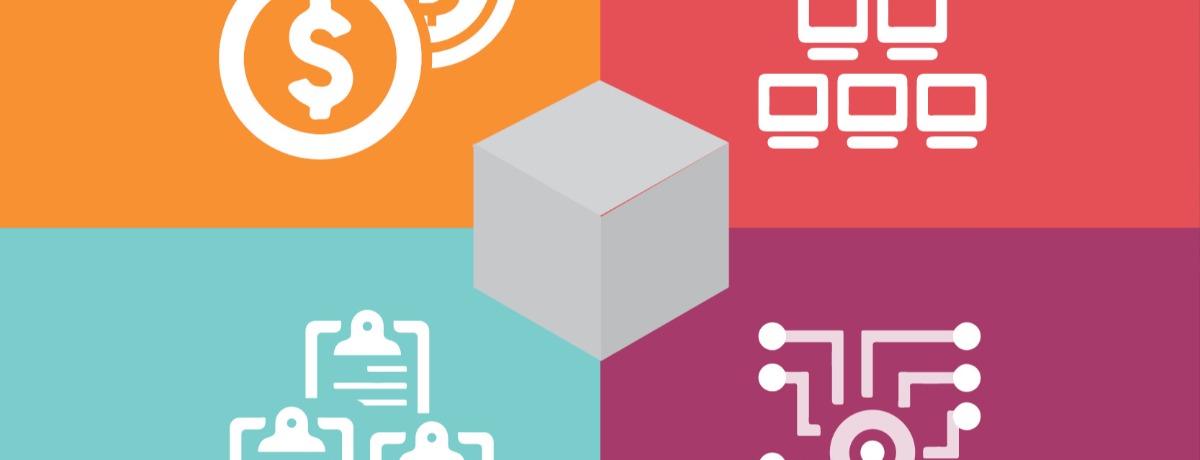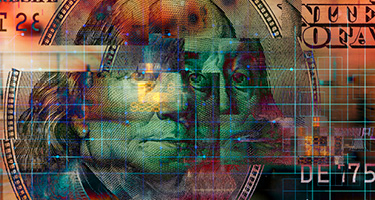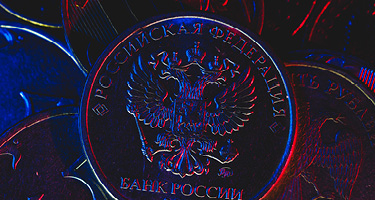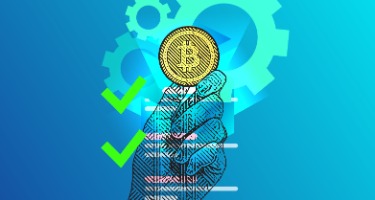For the last year or so, cryptocurrencies have been the object of a global investment frenzy, leading many to try to understand the underlying technology, blockchain, that makes it all possible. To laymen, blockchain often seems like some sort of magical black box, almost a belief system: great for Bitcoin obsessives but offering limited practical utility for the average business. Once you understand how cryptocurrencies work, though, blockchain’s long-term potential seems less phantasmagoric. Indeed, its real-world applications are diverse and numerous—and growing only more so.
A decade ago, Bitcoin’s developer—a mysterious figure (or group) known as Satoshi Nakamoto—sought to create an anonymous medium of exchange that could be used securely over the internet, impervious to easy duplication or being counterfeited. The solution it came up with was blockchain, which combines digital encryption with distributed-network technology to provide a means of exchange that needs no central authority, such as a government or bank, to facilitate and support the transfer of value.
Hashing It Out
Blockchain is what’s known as “distributed ledger technology.” Regarding Bitcoin, for example, it’s a series of digital records that together form an unbreakable string of financial transactions.
Successive transactions are linked using a cryptographic function called a “hash,” which takes input data of a given nature and creates unique output data from it. For Bitcoin, the hash function will accept input data of any length of numbers relating to each transaction but generate an output of fixed length. Each transaction in the chain is represented by a digital record (a “block”) that includes transaction data and a time stamp.
In addition, each block contains a cryptographic hash of the previous block in the chain. This fixed-output summary can then be compared to prior outputs in related transactions to detect whether the input has been altered. With Bitcoin, then, an input resulting in a new and different hash value output might indicate an unauthorized transaction in the input data, or an attempted counterfeit.
Strength in Numbers
The integrity of the Bitcoin blockchain is bolstered by the proliferation of copies of the entire ledger across a network of dedicated nodes, and the requirement of consensus among these nodes for acceptance of additions to the chain—security features that make it difficult and costly to alter it.
Blockchain is not without drawbacks. As implemented in Bitcoin, the process consumes enormous amounts of computing power, which has widely documented knock-on environmental consequences. Encryption consumes another precious commodity—time—which limits the speed at which new transactions become valid—Bitcoin’s blockchain is by definition open and public, necessitating the participation of self-appointed volunteers—known as Bitcoin miners—who provide the nodes and computing power needed to operate the system. What’s more, the Bitcoin blockchain has not yet been fully vetted by the kind of widespread use that would reveal potential significant systemic vulnerabilities.
Secure, Reliable Recordkeeping
Increasing numbers of mainstream professions outside the opaque realm of cryptocurrencies are beginning to recognize blockchain’s potential for secure, reliable recordkeeping: real estate, personal property, chain-of-custody provenance for documents or works of art, notarization and enforcement of escrow agreements, and more. Property sales and transfers might henceforth be embodied in a blockchain ledger, potentially lowering governments’ cost of maintaining public land records.
Pilot projects of this nature have been launched by governments in the U.S. and abroad. The government of Estonia, for example, has implemented a blockchain solution for storing and processing citizens’ health records.
Another promising area: cross-border and supply-chain transactions. Ideally, blockchain would enable all parties in a string of transactions to verify the performance and payment information provided by all manner of remote parties.
Piece by Piece: Blockchain and the Law
Blockchain may well offer disruptive legal-practice solutions, too. On the litigation side, blockchain systems are being proposed to improve the reliability of information related to service of a summons or subpoena. One proposed implementation: A smartphone app reports GPS coordinates and a time stamp to verify the time and location of service attempts.
It’s also being promoted as a way to structure “smart business contracts”—those in which the obligations of a transaction can be embodied in a blockchain record and structured so that specific events automatically trigger the parties’ performance and payment obligations. IBM currently offers a platform for drafting and executing smart contracts, as do a number of startups.
It seems unlikely that smart contracts will replace transactional attorneys anytime soon, but lawyers need to get familiar with the technology and conversant in smart-contract structures as the use of blockchain on contracting proliferates. Indeed, getting well acquainted with all aspects of blockchain technology is becoming a necessary component of any forward-looking lawyer’s tool kit.




























